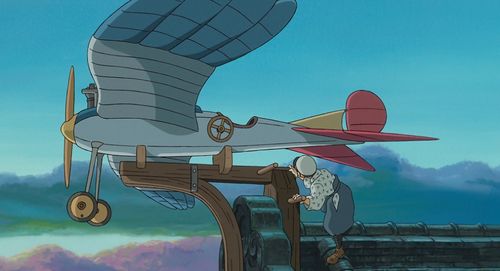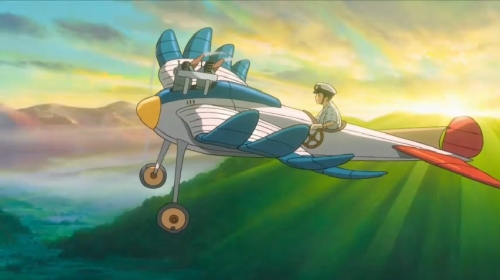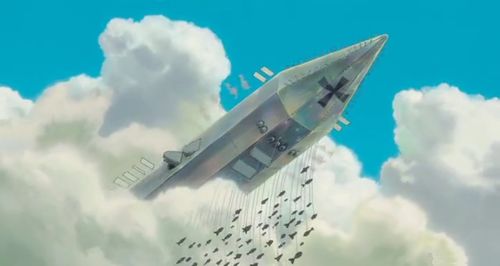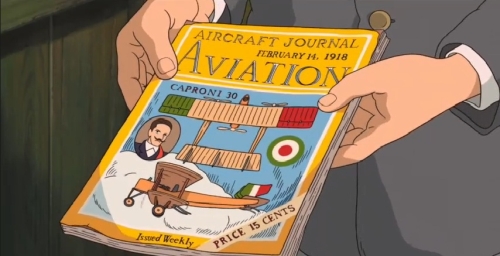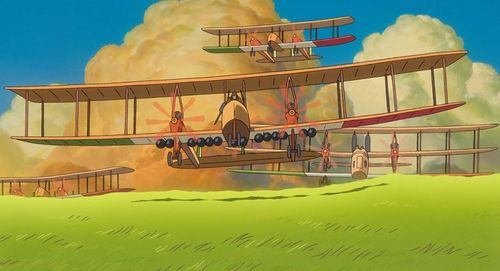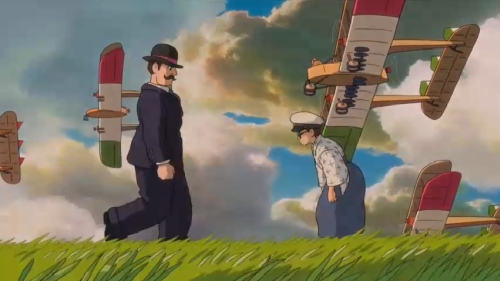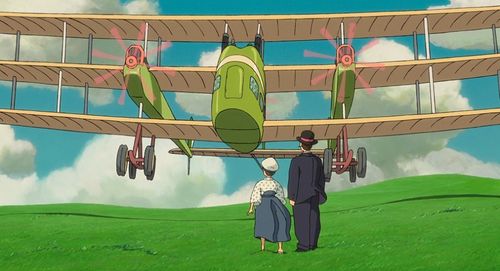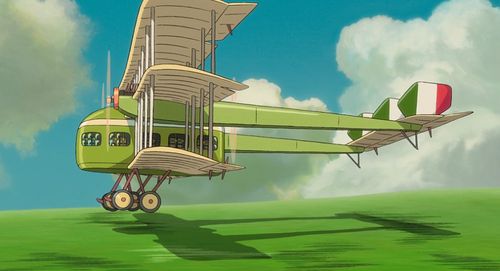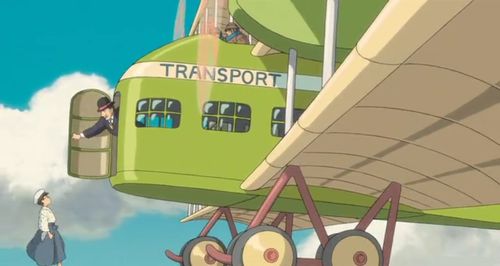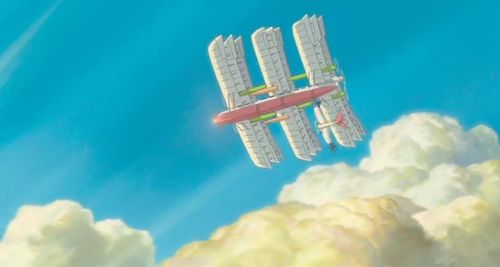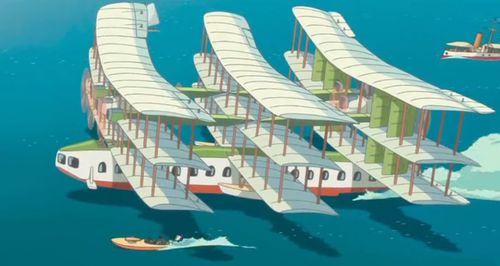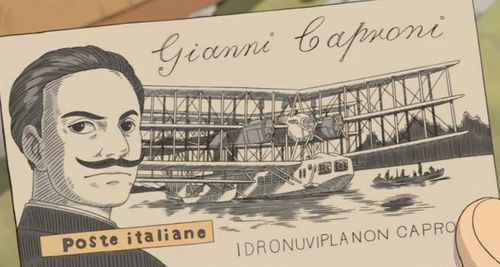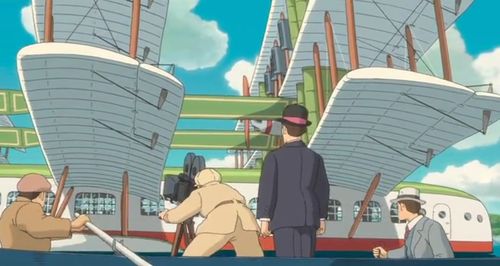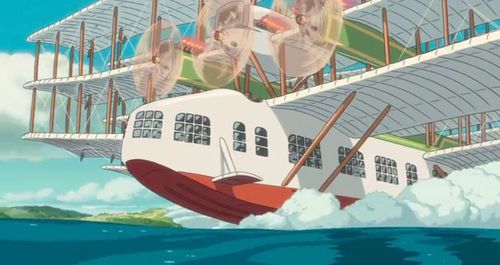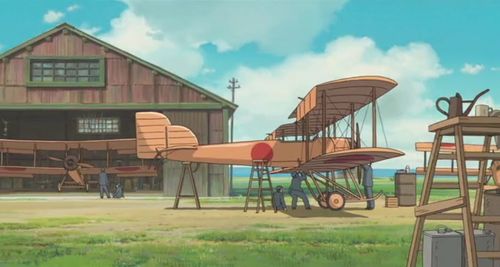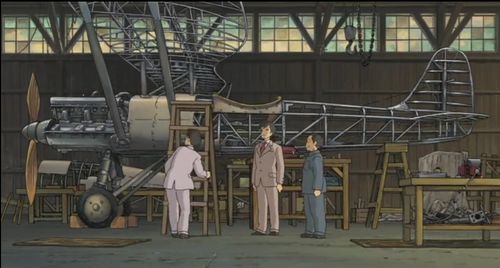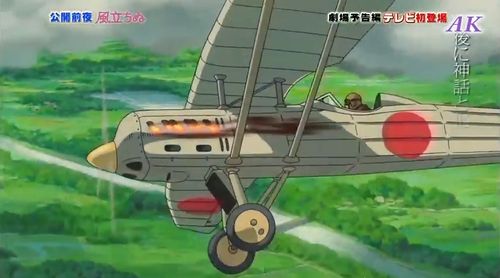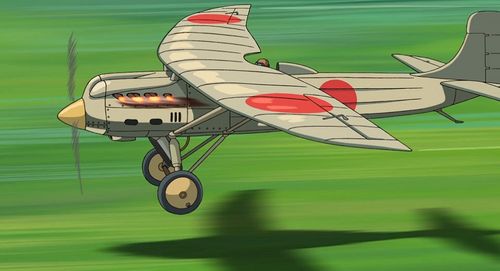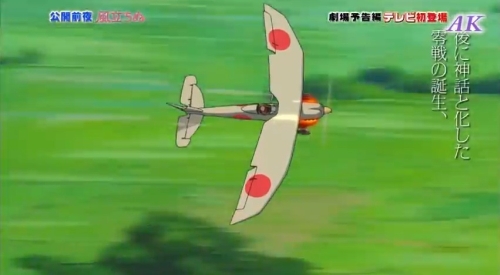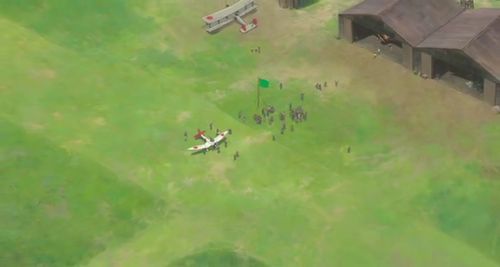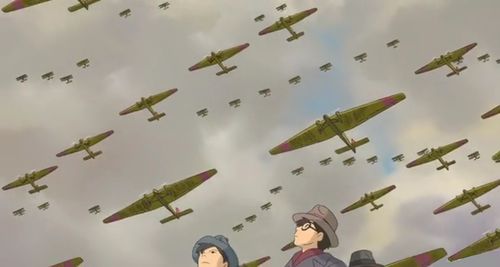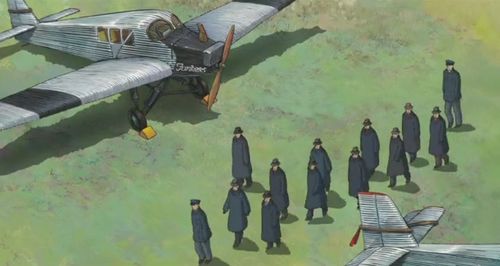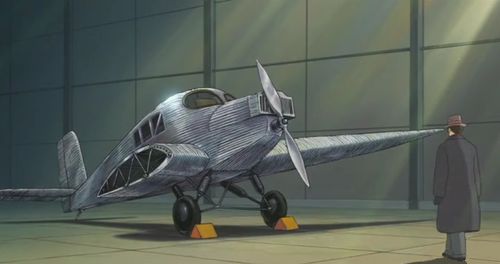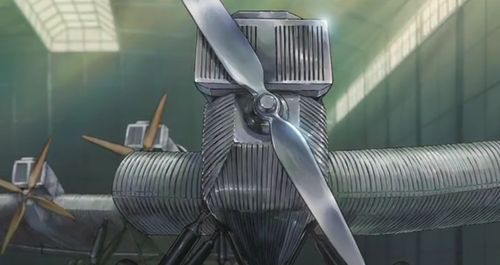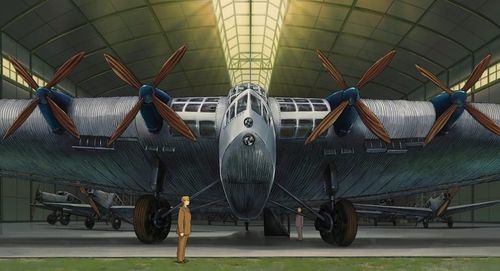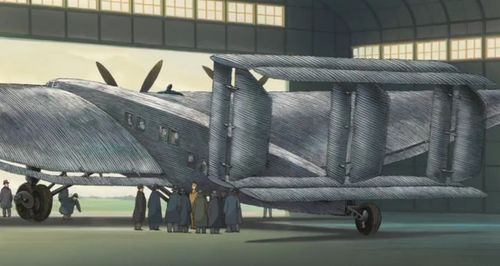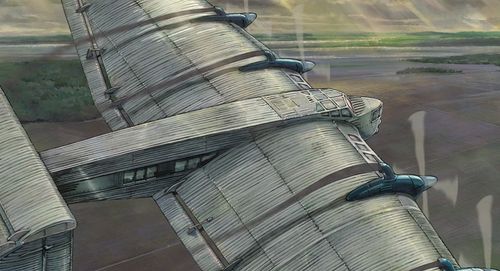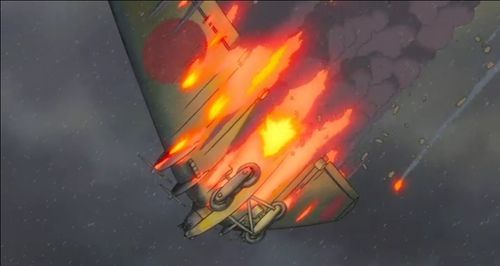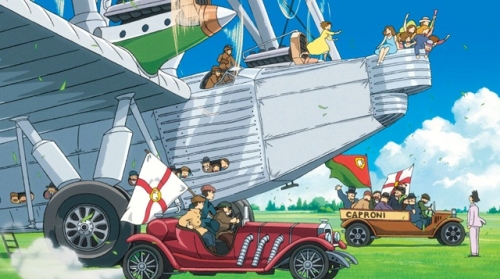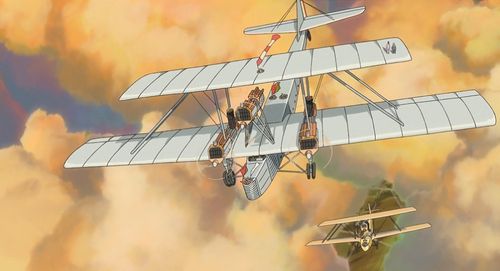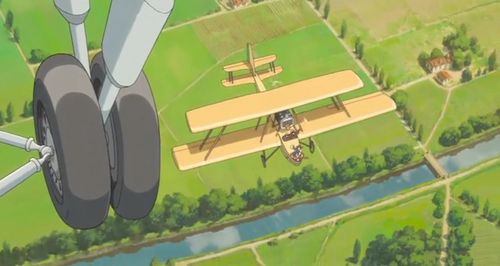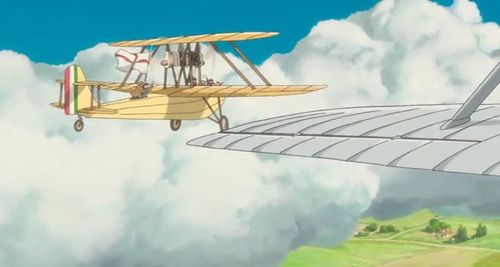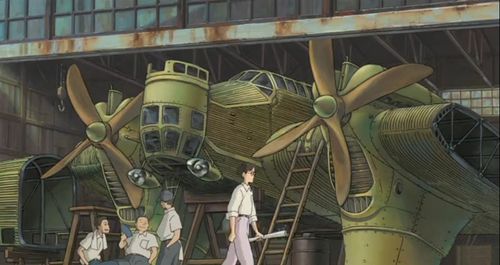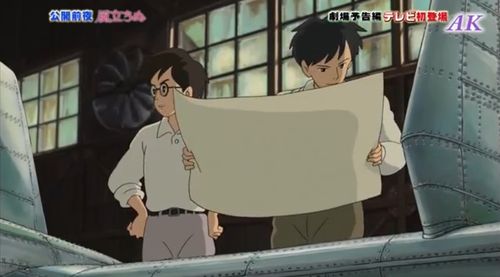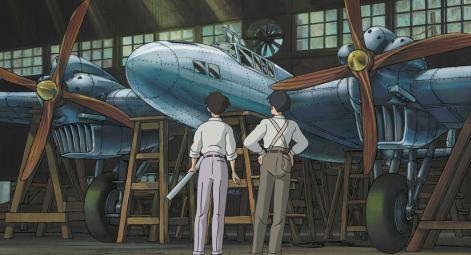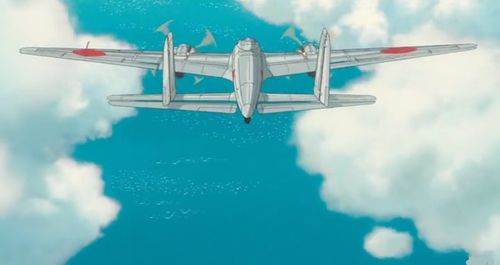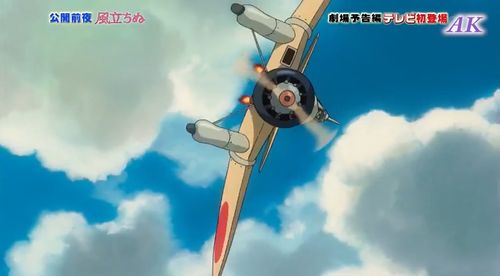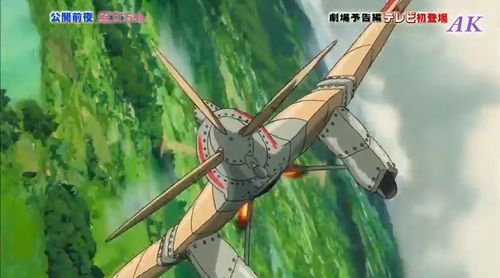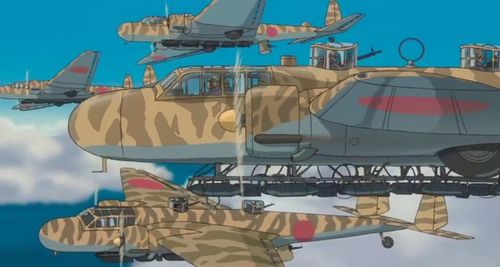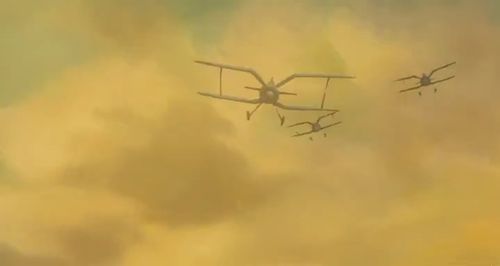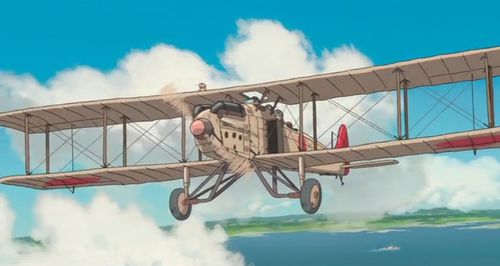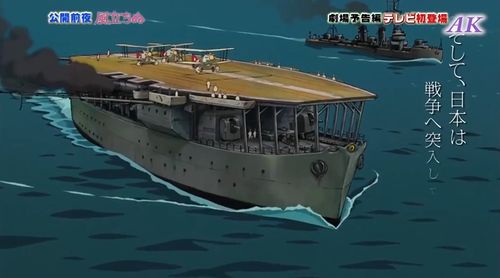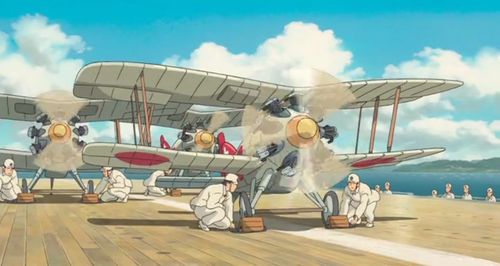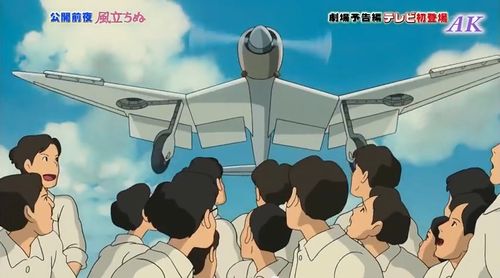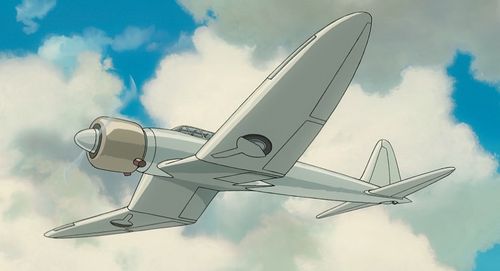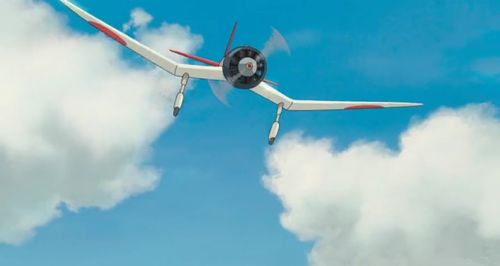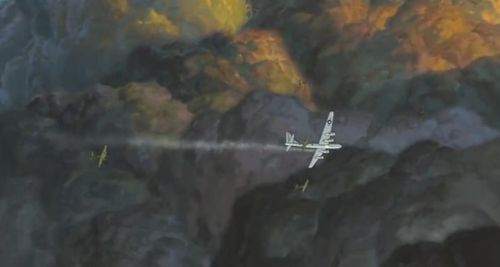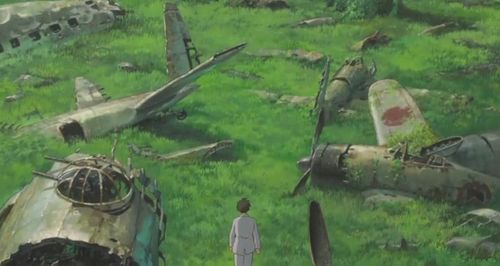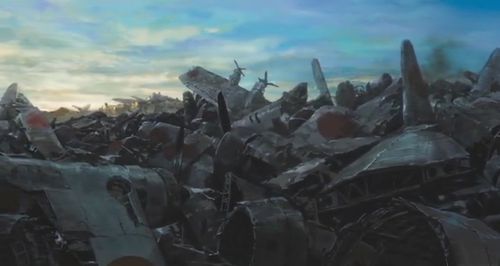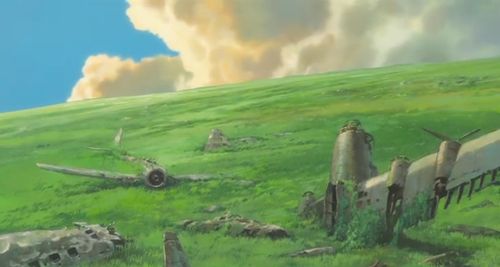Difference between revisions of "Kaze tachinu"
(New Category: Hanriot HD.14 + httpS) |
|||
| (35 intermediate revisions by 3 users not shown) | |||
| Line 1: | Line 1: | ||
| − | |||
[[Image:KT poster.jpg|thumb|right|350px|none|<i>Kaze tachinu </i> movie poster.]] | [[Image:KT poster.jpg|thumb|right|350px|none|<i>Kaze tachinu </i> movie poster.]] | ||
| − | <b>Movie (2013)<br></b> | + | <b>Animated Movie (2013)<br></b> |
Also known as: <br> | Also known as: <br> | ||
<b>The Wind Rises</b> (internatinal title) <br> | <b>The Wind Rises</b> (internatinal title) <br> | ||
<b>Le vent se lève</b> (french title)<br> | <b>Le vent se lève</b> (french title)<br> | ||
| − | 風立ちぬ<br | + | 風立ちぬ<br> |
<font color="blue"> | <font color="blue"> | ||
| Line 15: | Line 14: | ||
A fictionalised biography of Jiro Horikoshi, designer of the Mitsubishi A6M Zero fighter aircraft which served in World War II. | A fictionalised biography of Jiro Horikoshi, designer of the Mitsubishi A6M Zero fighter aircraft which served in World War II. | ||
| − | == Fictional Dream Machine == | + | {{Animated aircraft}} |
| + | |||
| + | == [[:Category:Made for Movie|Fictional Dream Machine ]] == | ||
| + | [[File:KT Plane.19.jpg|thumb|500px|none|]] | ||
[[Image:KT Dream-Machine.jpg|thumb|500px|none|]] | [[Image:KT Dream-Machine.jpg|thumb|500px|none|]] | ||
| + | |||
| + | == [[:Category:Made for Movie|Fictional Zeppelin ]] == | ||
| + | An agressive Zeppelin (as during the World War I, Japan was of the Entente Powers, against German Empire). | ||
| + | [[Image:KT fictionnal Zep.jpg|thumb|500px|none|]] | ||
== [[:Category: Caproni Ca.3 | Caproni Ca.3]] == | == [[:Category: Caproni Ca.3 | Caproni Ca.3]] == | ||
Caproni Ca-30 is a post war identification. | Caproni Ca-30 is a post war identification. | ||
[[Image:KT Caproni Ca-30.jpg|thumb|500px|none|]] | [[Image:KT Caproni Ca-30.jpg|thumb|500px|none|]] | ||
| + | [[File:KT Plane2.14.jpg|thumb|500px|none|]] | ||
[[Image:KT_Caproni_Ca-30s.jpg|thumb|500px|none|]] | [[Image:KT_Caproni_Ca-30s.jpg|thumb|500px|none|]] | ||
| − | == Caproni Ca. | + | == Caproni Ca.48 == |
[[Image:KT_Caproni_Ca-4.jpg|thumb|500px|none|]] | [[Image:KT_Caproni_Ca-4.jpg|thumb|500px|none|]] | ||
| + | [[File:KT Plane4.8.jpg|thumb|500px|none|]] | ||
| + | [[Image:KT_Caproni_Ca-4N.jpg|thumb|500px|none|]] | ||
| + | |||
| + | == Caproni Ca.60 Noviplano == | ||
| + | The Caproni Ca.60 Noviplano was a nine-wing flying boat intended to be a prototype for a 100-passenger trans-atlantic airliner. First and only flight on 4th March 1921. | ||
| + | [[Image:KT_Caproni_Ca-60.jpg|thumb|500px|none|]] | ||
| + | [[Image:KT_Caproni_Ca-60a.jpg|thumb|500px|none|]] | ||
| + | A realistic portrait of Giovanni Battista Caproni. | ||
| + | [[Image:KT_Caproni_Ca-60b.jpg|thumb|500px|none|]] | ||
| + | [[Image:KT_Caproni_Ca-60c.jpg|thumb|500px|none|]] | ||
| + | [[Image:KT_Caproni_Ca-60d.jpg|thumb|500px|none|]] | ||
| + | |||
| + | == [[:Category: Hanriot HD.14|Mitsubishi Army Type Ki 1 Trainer]] == | ||
| + | Jiro Horikoshi recently graduates as an engineer in 1927. This is the first aircraft he could quickly see at the Mitsubishi factory, a licence-built Hanriot HD-14. | ||
| + | [[Image:KT_biplane_hinomaru.jpg|thumb|500px|none|]] | ||
| + | |||
| + | == Mitsubishi 1MF2 == | ||
| + | [[Image:KT_Mitsubishi-1MF2_stripped.jpg|thumb|500px|none|]] | ||
| + | [[Image:KT Parasol.jpg|thumb|500px|none|]] | ||
| + | [[File:Plane6.6.jpg|thumb|500px|none|]] | ||
| + | [[Image:KT_Mitsubishi-1MF2.jpg|thumb|500px|none|]] | ||
| + | |||
| + | == Mitsubishi Navy Type 93 == | ||
| + | On the top of the picture. | ||
| + | [[Image:KT what.jpg|thumb|500px|none|]] | ||
| + | |||
| + | == [[:Category: Tupolev ANT-4|Tupolev TB-1]] == | ||
| + | During the travel through Soviet Union, the japanese engineers saw a flypast. | ||
| + | [[Image:KT_Tupolev_TB-1.jpg|thumb|500px|none|]] | ||
| + | |||
| + | == [[:Category: Junkers F 13|Junkers F 13]] == | ||
| + | [[Image:KT_Junkers_F-13.jpg|thumb|500px|none|]] | ||
| + | [[Image:KT_Junkers_F-13b.jpg|thumb|500px|none|]] | ||
| + | |||
| + | == [[:Category: Junkers G 23/24|Junkers G 23]] == | ||
| + | Behind the Junkers F 13 we can guess what seems to be a trimotor. At this time, the only Junkers trimotor was the Junkers G 23 (and the wider G 24) but the engines were slighty different and the propeller were a three blade one on the center with two two blade ones on the wing's engines. | ||
| + | [[Image:KT Junkers G-23-false.jpg|thumb|500px|none|]] | ||
| + | |||
| + | == [[:Category: Junkers G 38|Junkers G 38]] == | ||
| + | [[Image:KT_Junkers_G-38.jpg|thumb|500px|none|]] | ||
| + | [[Image:KT_Junkers_G-38b.jpg|thumb|500px|none|]] | ||
| + | [[File:KT Plane10.4.jpg|thumb|500px|none|]] | ||
| + | |||
| + | == Mitsubishi Ki-20 == | ||
| + | [[Image:KT_Mitsubishi_Ki-20.jpg|thumb|500px|none|]] | ||
| + | |||
| + | == Caproni Ca.90 == | ||
| + | [[Image:Caproni_Ca-90.jpg|thumb|500px|none|]] | ||
| + | [[File:Plane12.4.jpg|thumb|500px|none|]] | ||
| + | |||
| + | == Caproni Ca.73 == | ||
| + | [[Image:KT Caproni Ca-73.jpg|thumb|500px|none|]] | ||
| + | [[Image:KT Caproni Ca-73b.jpg|thumb|500px|none|]] | ||
| − | == [[Category: | + | == [[:Category: Mitsubishi Ki-1|Mitsubishi Ki-1]] == |
| − | + | [[Image:KT_Mitsubishi_Ki-1.jpg|thumb|500px|none|]] | |
| − | Mitsubishi | + | |
| + | == Mitsubishi G1M1 == | ||
| + | The Mitsubishi G1M1 (also known as Mitsubishi Ka.9) was unique and led to the G3M bomber. | ||
[[Image:KT Ki-1.jpg|thumb|500px|none|]] | [[Image:KT Ki-1.jpg|thumb|500px|none|]] | ||
| + | [[Image:Mitsubishi_L3Y1.jpg|thumb|500px|none|]] | ||
| + | [[Image:KT_Mitsubishi_Ki-1a.jpg|thumb|500px|none|]] | ||
== Mitsubishi Experimental 7-Shi == | == Mitsubishi Experimental 7-Shi == | ||
| Line 36: | Line 100: | ||
[[Image:KT Nakajima Ki-11a.jpg|thumb|500px|none|]] | [[Image:KT Nakajima Ki-11a.jpg|thumb|500px|none|]] | ||
| − | == Mitsubishi | + | == [[:Category: Mitsubishi G3M|Mitsubishi G3M]] == |
| − | [[Image:KT | + | [[Image:KT_Mitsubishi_G-3.jpg|thumb|500px|none|]] |
| − | [[Image: | + | |
| + | == [[:Category: Polikarpov I-15|Polikarpov I-15]] == | ||
| + | [[Image:KT Polikarpov I-15bis.jpg|thumb|500px|none|]] | ||
| + | |||
| + | == [[:Category: Mitsubishi B1M|Mitsubishi B1M3]] == | ||
| + | [[Image:KT_Mitsubishi_B1M.jpg|thumb|500px|none|]] | ||
| − | == | + | == [[:Category: Nakajima A1N|Nakajima A1N1]] == |
[[Image:KT Yokosuka-B4Y.jpg|thumb|500px|none|]] | [[Image:KT Yokosuka-B4Y.jpg|thumb|500px|none|]] | ||
| + | [[Image:KT Nakajima A1N2.jpg|thumb|500px|none|]] | ||
| + | [[Image:KT_Nakajima_A1N2a.jpg|thumb|500px|none|]] | ||
| − | == [[:Category: | + | == [[:Category: Mitsubishi A5M|Mitsubishi A5M concept]] == |
| − | |||
[[Image: KT Aichi-B7A.jpg|thumb|500px|none|]] | [[Image: KT Aichi-B7A.jpg|thumb|500px|none|]] | ||
| + | [[File:KT Plane15.3.jpg|thumb|500px|none|]] | ||
| + | |||
| + | == [[:Category: Mitsubishi A5M|Mitsubishi A5M prototype]] == | ||
| + | (also known as Mitsubishi Ka.14). <br> | ||
| + | Unlike the serial Mitsubishi A5M, the prototype had an inverted gull wing.<br> | ||
| + | [[Image:KT_Mitsubishi_Ka-14.jpg|thumb|500px|none|]] | ||
| + | |||
| + | == [[:Category: Boeing B-29 Superfortress|Boeing B-29 Superfortress]] & Unidentifiable Japanese Fighter == | ||
| + | A stricken B-29 is chased by japanese twin engined fighters; probably Kawasaki Ki-45 or Mitsubishi Ki-46. | ||
| + | [[Image:KT_B-29.jpg|thumb|500px|none|]] | ||
| + | == [[:Category: Mitsubishi A6M Zero|Mitsubishi A6M Zero]] == | ||
| + | [[Image:KT_A6M2.jpg|thumb|500px|none|]] | ||
| + | A Zero (at right) with various bombers and transport wrecks. | ||
| + | [[Image:KT_A6M.jpg|thumb|500px|none|]] | ||
| + | == [[:Category: Nakajima G8N|Nakajima G8N]] == | ||
| + | Among the wrecks, a wing with two engines (but no float). Japan has a single land-based four engine airplane, the Nakajima G8N. | ||
| + | [[Image:KT ashes3.jpg|thumb|500px|none|]] | ||
| + | |||
| + | == [[:Category: Nakajima Ki-43|Nakajima Ki-43 Hayabusa]] == | ||
| + | And clearly a Nakajima G8N at right. | ||
| + | [[Image:KT_Oscar.jpg|thumb|500px|none|]] | ||
{{footnote}} | {{footnote}} | ||
| − | |||
== See also == | == See also == | ||
| − | * [ | + | * [https://www.imdb.com/title/tt2013293/ Kaze tachinu on IMDb] |
| − | * [ | + | * [https://en.wikipedia.org/wiki/Kaze_Tachinu Kaze tachinu (The Wind Rises) on Wikipedia] |
| + | * [https://imcdb.org/movie.php?id=2013293 Kaze tachinu on IMCDb] | ||
| − | [[Category: | + | [[Category: Boeing B-29 Superfortress]] |
[[Category: Caproni Ca.3]] | [[Category: Caproni Ca.3]] | ||
| + | [[Category: Hanriot HD.14]] | ||
| + | [[Category: Junkers F 13]] | ||
| + | [[Category: Junkers G 23/24]] | ||
| + | [[Category: Junkers G 38]] | ||
| + | [[Category: Mitsubishi A5M]] | ||
| + | [[Category: Mitsubishi A6M Zero]] | ||
| + | [[Category: Mitsubishi B1M]] | ||
| + | [[Category: Mitsubishi G3M]] | ||
| + | [[Category: Nakajima A1N]] | ||
| + | [[Category: Nakajima G8N]] | ||
| + | [[Category: Nakajima Ki-43]] | ||
| + | [[Category: Polikarpov I-15]] | ||
| + | [[Category: Tupolev ANT-4]] | ||
Latest revision as of 16:50, 11 January 2024
Animated Movie (2013)
Also known as:
The Wind Rises (internatinal title)
Le vent se lève (french title)
風立ちぬ
Starring:
Voices depending the country.
A fictionalised biography of Jiro Horikoshi, designer of the Mitsubishi A6M Zero fighter aircraft which served in World War II.
Note: This is an animated film. The aircraft shown in it are therefore not actual aircraft, however, where a reasonable depiction of an actual aircraft has been created, it has been identified as best as possible.
Fictional Dream Machine
Fictional Zeppelin
An agressive Zeppelin (as during the World War I, Japan was of the Entente Powers, against German Empire).
Caproni Ca.3
Caproni Ca-30 is a post war identification.
Caproni Ca.48
Caproni Ca.60 Noviplano
The Caproni Ca.60 Noviplano was a nine-wing flying boat intended to be a prototype for a 100-passenger trans-atlantic airliner. First and only flight on 4th March 1921.
A realistic portrait of Giovanni Battista Caproni.
Mitsubishi Army Type Ki 1 Trainer
Jiro Horikoshi recently graduates as an engineer in 1927. This is the first aircraft he could quickly see at the Mitsubishi factory, a licence-built Hanriot HD-14.
Mitsubishi 1MF2
On the top of the picture.
Tupolev TB-1
During the travel through Soviet Union, the japanese engineers saw a flypast.
Junkers F 13
Junkers G 23
Behind the Junkers F 13 we can guess what seems to be a trimotor. At this time, the only Junkers trimotor was the Junkers G 23 (and the wider G 24) but the engines were slighty different and the propeller were a three blade one on the center with two two blade ones on the wing's engines.
Junkers G 38
Mitsubishi Ki-20
Caproni Ca.90
Caproni Ca.73
Mitsubishi Ki-1
Mitsubishi G1M1
The Mitsubishi G1M1 (also known as Mitsubishi Ka.9) was unique and led to the G3M bomber.
Mitsubishi Experimental 7-Shi
This carrier fighter has the company designation 1MF10.
Mitsubishi G3M
Polikarpov I-15
Mitsubishi B1M3
Nakajima A1N1
Mitsubishi A5M concept
Mitsubishi A5M prototype
(also known as Mitsubishi Ka.14).
Unlike the serial Mitsubishi A5M, the prototype had an inverted gull wing.
Boeing B-29 Superfortress & Unidentifiable Japanese Fighter
A stricken B-29 is chased by japanese twin engined fighters; probably Kawasaki Ki-45 or Mitsubishi Ki-46.
Mitsubishi A6M Zero
A Zero (at right) with various bombers and transport wrecks.
Nakajima G8N
Among the wrecks, a wing with two engines (but no float). Japan has a single land-based four engine airplane, the Nakajima G8N.
Nakajima Ki-43 Hayabusa
And clearly a Nakajima G8N at right.
Back To:

